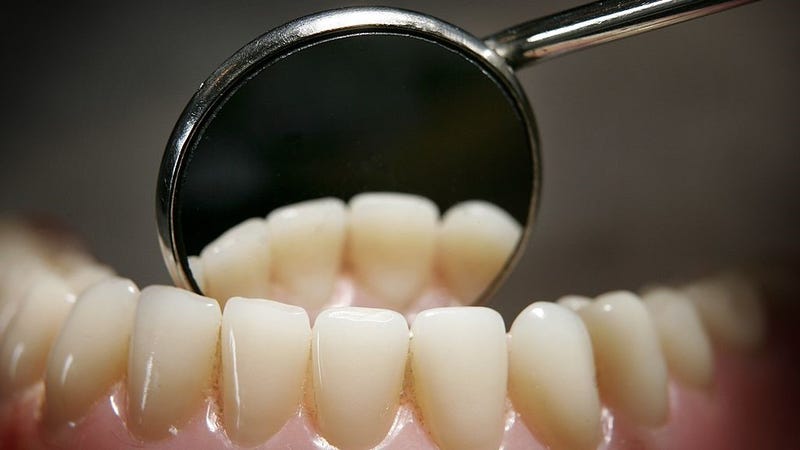
Researchers have developed a synthetic enamel for the first time, and it's stronger and more durable than the real thing.
Dental enamel protects the tooth from physical, thermal, and chemical forces that could damage the tooth. It is the hardest tissue in the human body, and scientists had not been able to create a stronger substitute until now.

Researchers have attempted to create an artificial enamel in the past, but struggled with making the structure as hard and as elastic as real enamel.
“This is a clear leap forward,” Alvaro Mata, a biomedical engineer at the University of Nottingham who was not involved with the study told Science.
He added that the new synthetical enamel has a variety of uses, “From creating body armor to strengthening or hardening surfaces for floors or cars, there could be many, many applications.”
Scientists tried to replicate nature's enamel assembly in the new study. Unlike in previous attempts at creating a synthetic enamel, this time, they encased the wires of hydroxyapatite (the mineral found in real enamel) in a malleable metal-based coating. This process made the artificial enamel incredibly strong, study co-author Nicholas Kotov, a chemical engineer at the University of Michigan, Ann Arbor said.
The coating makes the wires less likely to snap because they can absorb strong pressures. Natural enamel has magnesium-rich coating, but this time the researchers used zirconium oxide to strengthen the product.
"When they pitted artificial enamel against natural tooth enamel on these tests, they found the lab-grown version outperformed its natural counterpart in six different areas, including its elasticity and ability to absorb vibrations," the research team told Science.
Human bodies cannot regenerate enamel, pushing scientists to come up with an artificial enamel that is more protective than the usual filling someone would get at the dentist's office.
“You carry the same set of teeth for 60 years, or maybe even more,” Kotov said. “So it’s an enormous chemical and mechanical stress.”
The scientists noted that the artificial enamel isn't quite ready for use yet, and still has to be tested to see how it bonds with natural enamel.
"Half of the world has problems with enamel, and many lead to very serious conditions, up to losing teeth,” Mata said. "It plays a huge, huge role in people’s quality of life."
The researchers are excited for the other possibilities that the product could be used for, such as protecting electronic chips in laptops or even helping engineers design new building materials.
"It opens opportunities for all sorts of applications beyond medicine," Janet Moradian-Oldak, a protein chemist at the University of Southern California’s school of dentistry who was not involved with the study, said.
LISTEN on the Audacy App
Sign up and follow Audacy
Facebook | Twitter | Instagram

